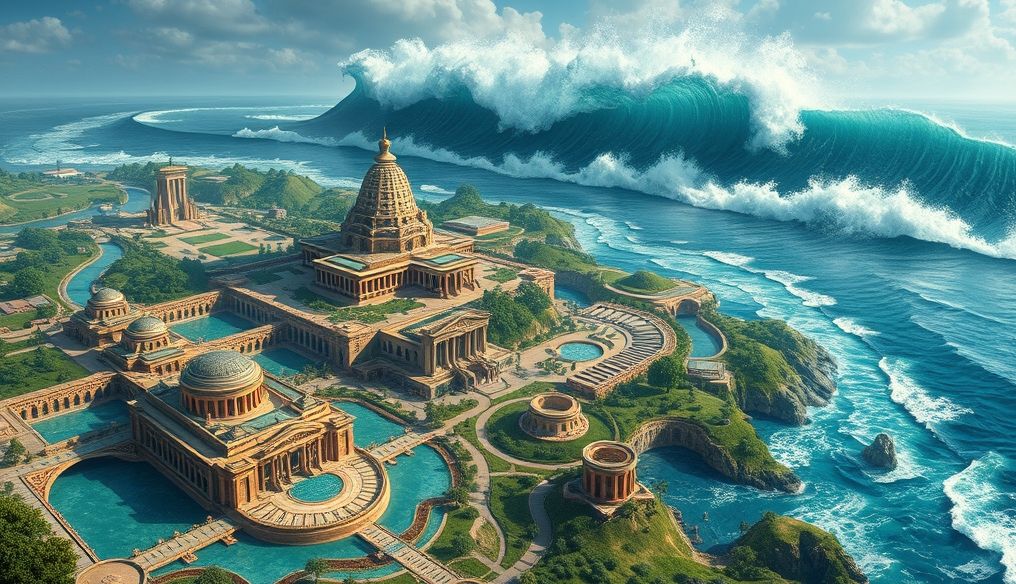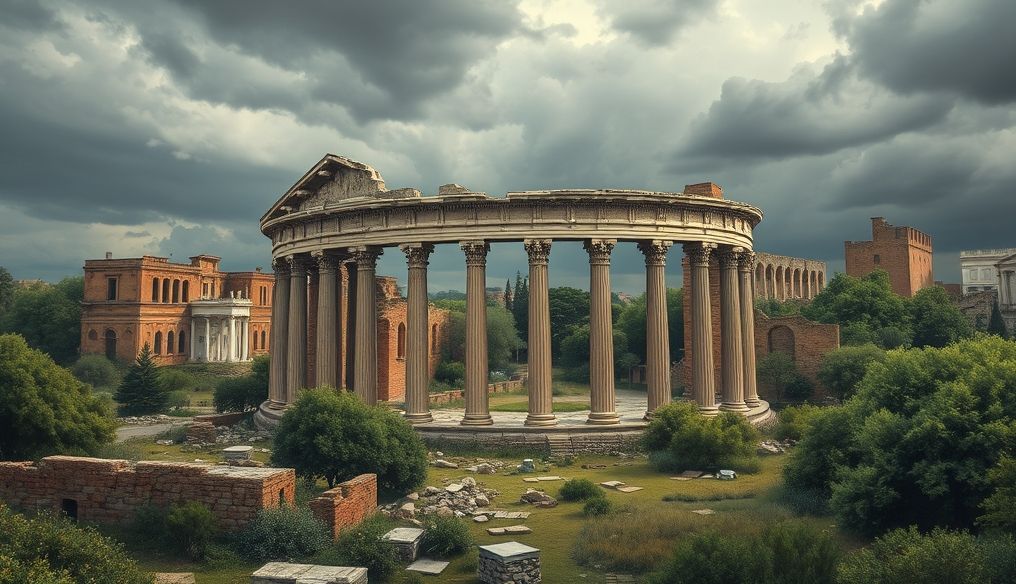Is Atlantis Fact or Fiction? A Comprehensive Scientific and Historical Overview
The story of Atlantis, the lost utopian city, has always captivated us. Is it merely Plato's imagination or a historical reality buried beneath the waves of time? This article delves deep into the legend, exploring historical and scientific evidence, and expert opinions, to uncover the truth about Atlantis.
1. Atlantis in Plato's Writings: The True Birth of the Legend
Atlantis was first mentioned in Plato's dialogues "Timaeus" and "Critias" around 360 BC. Plato described Atlantis as a great naval power located "beyond the Pillars of Hercules" (the Strait of Gibraltar). It was an advanced civilization, rich in resources, and militarily powerful. But it eventually fell into the wrath of the gods because of its greed and arrogance, and sank into the sea in a day and night.
The Significance of Plato's Dialogues
- Primary Source: Plato's dialogues are the only source that describes Atlantis in detail.
- Plato's Purpose: Many scholars believe that Plato used Atlantis as a symbolic story to represent an ideal state corrupted by power and greed.
- Ambiguity of Details: Despite the detailed description, many aspects of Atlantis remain ambiguous, sparking various speculations and interpretations.
2. The Search for Atlantis: A Journey Through History and Geography
Over the centuries, the story of Atlantis has inspired many explorers and scientists to search for the lost city. Different locations have been proposed for Atlantis, from the Mediterranean Sea to the Atlantic Ocean, and even Antarctica.
Notable Theories and Proposed Locations
- Mediterranean Sea: Some have linked Atlantis to the advanced Minoan civilization that flourished on the island of Crete and then collapsed suddenly.
- Atlantic Ocean: Some believe that Atlantis was located in the Atlantic Ocean, perhaps in the area of the Azores or the Canary Islands.
- Antarctica: A controversial theory suggests that Atlantis was located in Antarctica before it was covered by ice sheets.
- Other Theories: There are many other theories that link Atlantis to different locations around the world, such as South America or Ireland.
3. Geological Evidence: Can an Entire Continent Sink?
The idea of an entire continent sinking in a day and night is geologically unlikely. However, there are some natural phenomena that can cause widespread destruction and lead to the sinking of large areas.
Earthquakes, Tsunamis, and Volcanoes
- Earthquakes: Large earthquakes can cause landslides and devastating tsunamis.
- Tsunamis: Tsunami waves can inundate vast coastal areas and cause heavy losses of life and property.
- Volcanoes: Massive volcanic eruptions can lead to significant climate changes and destroy surrounding areas.
4. Lost Civilizations: Was Atlantis a Source of Inspiration for Ancient Civilizations?
Some point to the similarity between the Atlantis myth and the stories of other lost civilizations, such as the Mayan civilization or the Indus Valley civilization, as evidence of the existence of an advanced mother civilization that influenced ancient civilizations.
Similarities and Differences
- Similarity: All of these civilizations were advanced in fields such as architecture, mathematics, and astronomy.
- Difference: The reasons for the collapse of these civilizations differ, with some attributed to climate change, invasions, or natural disasters.
5. Psychological Interpretations: Why Does the Atlantis Myth Appeal to Us?
The Atlantis myth appeals to us for many reasons, including:
Psychological Reasons
- Nostalgia for the Past: The Atlantis myth reflects a nostalgia for the golden past, where life was simple and happy.
- Fear of the Unknown: The Atlantis myth evokes fear of the unknown and of natural disasters that could destroy our civilization.
- Hope for a Better Future: The Atlantis myth inspires hope for a better future, where we can build a more just and sustainable civilization.
6. Atlantis in Popular Culture: From Literature to Cinema
The Atlantis myth has inspired many literary, artistic, and cinematic works. Atlantis has been depicted in many films, television series, and video games, contributing to the spread and perpetuation of the myth.
Examples of the Embodiment of Atlantis in Popular Culture
- "20,000 Leagues Under the Sea" by Jules Verne: The Nautilus submarine explores the ruins of Atlantis.
- Disney's "Atlantis: The Lost Empire": Depicts an adventure story to find Atlantis.
- "Assassin's Creed" video game series: Includes Atlantis as part of the story.
7. Expert Opinions: Between Belief and Skepticism
Expert opinions differ on the reality of Atlantis. Some believe that there is a small chance of the existence of Atlantis, while others see it as just a myth.
Different Perspectives
- Supporters: Believe that there is historical and geological evidence to support the existence of Atlantis.
- Skeptics: See the story of Atlantis as just Plato's imagination, and there is no conclusive evidence of its existence.
8. Can Atlantis Be Found? Challenges and Future Prospects
Despite the efforts made, no conclusive evidence of the existence of Atlantis has been found to date. However, modern technological advances, such as deep-sea surveying, may increase the chances of finding new evidence in the future.
Challenges and Opportunities
- Challenges: Difficulty accessing the ocean floor, and the high cost of exploration operations.
- Opportunities: Technological developments, and the growing interest in the search for Atlantis.
9. Lessons from Atlantis: A Warning Against Vanity and the Pursuit of Power
Regardless of whether Atlantis is a reality or just a myth, it holds valuable lessons for us. The story of Atlantis teaches us that vanity and the pursuit of power can lead to destruction, and that maintaining a balance between technology and nature is essential for the survival of our civilization.
10. Conclusion: Atlantis - A Living Legend That Inspires Us
Atlantis remains a mystery that sparks our curiosity and ignites our imagination. Whether it is a historical fact or just a symbolic story, the Atlantis myth will remain alive inspiring us and reminding us of the importance of humility, wisdom, and responsibility.




